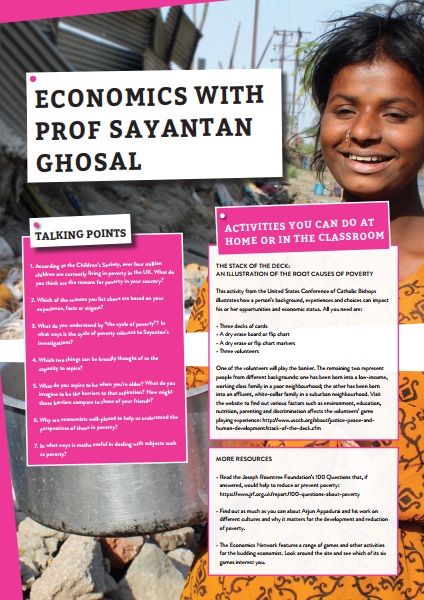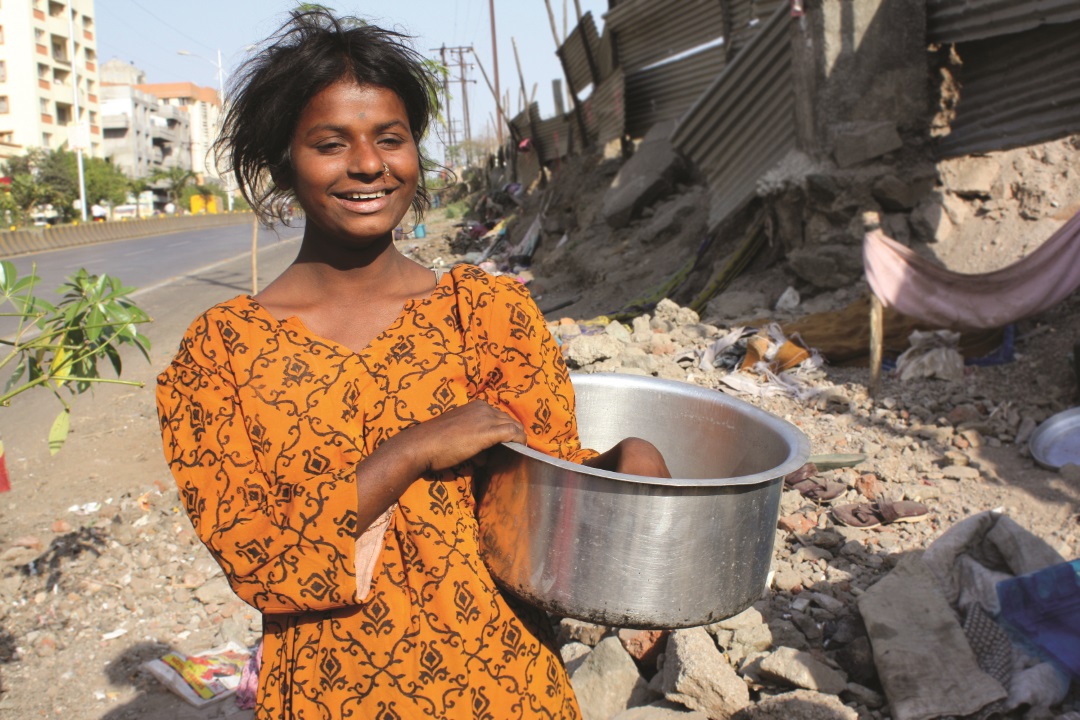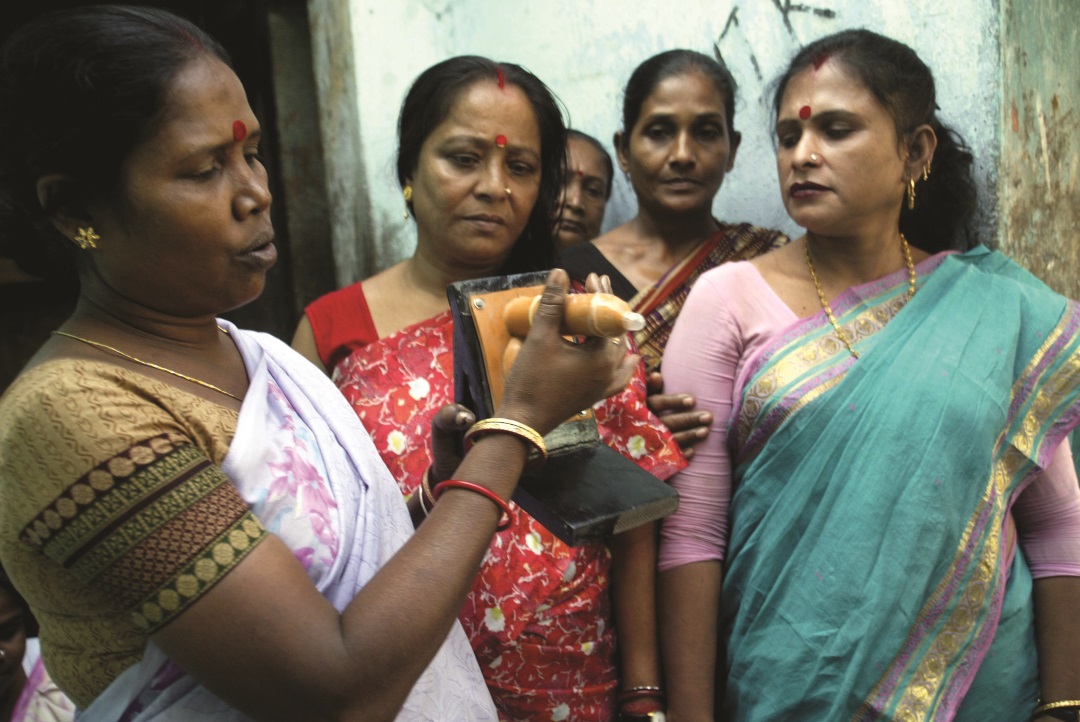An economist’s guide to understanding poverty
KEY WORDS
An intervention is an action intended to improve or prevent a difficult situation from getting worse.
Marginalisation is the act of treating someone or something as if they are not important.
A stigma is a strong feeling of disapproval; to stigmatise is to treat someone unfairly by disapproving of them.
Empirical evidence or data is evidence that is based on experience rather than on theory. These definitions can be found in the Cambridge Dictionary.
According to the most recent estimates (which were calculated in 2015), 10 percent of the global population live on less than $1.90 a day – the World Bank’s international poverty line. While living on such a meagre amount is unimaginable to the majority of us, $1.90 (about £1.45) is seen as the minimum average amount an individual needs. A person living on anything below that is considered to be living in poverty. Of course, it is important to recognise that this is only an average global figure.
What constitutes poverty will vary wildly from country to country. There are lots of reasons behind why people continue to live in poverty, but in recent times, research shows that the capacity to aspire to something better can reduce poverty. The capacity to aspire means two things:
1. The ability to set realistic goals (for example, I want to become an economist like Sayantan)
2. The ability to see a pathway to achieving these goals (for example, I know I can go to my local college to study economics)
It is this idea that inspired Professor Sayantan Ghosal to conduct his Poverty and Aspirations Failure study. Sayantan is an economist, based at the University of Glasgow in Scotland. “I was very interested in building an economic theory on how economics might affect the capacity to aspire,” he says. “Was there something about poverty that made this behavioural bias more negative than for those who are more well off?
WHAT ELSE INSPIRED SAYANTAN’S POVERTY AND ASPIRATIONS FAILURE STUDY?
Sayantan and his team looked at an intervention called Dream Building, which was pioneered by an engineer working with sex workers in Calcutta in India. The idea was to use innovative interventions to prevent the spread of HIV. One of the things the Dream Building team discovered was a simple and yet highly successful intervention: encouraging the most prominent personalities in the group of sex workers to spread the message about HIV and prevention.
The Dream Building study also found that when the sex workers were presented with a sense that there was a positive future for them, they acted more responsibly – they behaved in a way that showed they believed they could influence their future by doing things now; for example, saving in high interest fixed deposit accounts and looking after their health. This led to Sayantan developing a theoretical framework for his Poverty and Aspirations Failure study.
WHAT IS A THEORETICAL FRAMEWORK?
To answer this question, it is a good idea to imagine a scenario. Suppose you take two people with the same aspirations i.e. “I want to be an economist”. One is rich and the other is poor. The poorer person must work harder to achieve the same goal as the richer person. But neither can know how the efforts they put in today will influence their future. My theory focused on this aspect.”
If the poorer person has to work harder, that person will ultimately put less effort in. This translates into lower aspirations over time. The problem is compounded if the poorer person is considered a victim of society. That person becomes less motivated to change society and ends up reinforcing the very thing that keeps them in poverty.
WHY IS IT IMPORTANT TO STUDY POVERTY IN THIS WAY?
When researchers such as Sayantan interact with people who are marginalised, they place their circumstances in the context of the wider society. This brings about a better understanding of these circumstances, not only among those who are not marginalised, but also among those who are. There is evidence to suggest that people who are stigmatised try to rationalise their situation by finding characteristics that appear to justify whether they actually exist (for example, only
lazy people claim benefits, therefore I must be lazy). It is a way for a marginalised individual to make sense of what is happening to them.
Reference
https://doi.org/10.33424/FUTURUM40
The Dream Building team discovered that it was highly successful to encourage the most prominent personalities in the group of sex workers to spread the message about HIV and prevention.
KEY WORDS
An intervention is an action intended to improve or prevent a difficult situation from getting worse.
Marginalisation is the act of treating someone or something as if they are not important.
A stigma is a strong feeling of disapproval; to stigmatise is to treat someone unfairly by disapproving of them.
Empirical evidence or data is evidence that is based on experience rather than on theory. These definitions can be found in the Cambridge Dictionary.
According to the most recent estimates (which were calculated in 2015), 10 percent of the global population live on less than $1.90 a day – the World Bank’s international poverty line. While living on such a meagre amount is unimaginable to the majority of us, $1.90 (about £1.45) is seen as the minimum average amount an individual needs. A person living on anything below that is considered to be living in poverty. Of course, it is important to recognise that this is only an average global figure.
What constitutes poverty will vary wildly from country to country. There are lots of reasons behind why people continue to live in poverty, but in recent times, research shows that the capacity to aspire to something better can reduce poverty. The capacity to aspire means two things:
1. The ability to set realistic goals (for example, I want to become an economist like Sayantan)
2. The ability to see a pathway to achieving these goals (for example, I know I can go to my local college to study economics)
It is this idea that inspired Professor Sayantan Ghosal to conduct his Poverty and Aspirations Failure study. Sayantan is an economist, based at the University of Glasgow in Scotland. “I was very interested in building an economic theory on how economics might affect the capacity to aspire,” he says. “Was there something about poverty that made this behavioural bias more negative than for those who are more well off?
WHAT ELSE INSPIRED SAYANTAN’S POVERTY AND ASPIRATIONS FAILURE STUDY?
Sayantan and his team looked at an intervention called Dream Building, which was pioneered by an engineer working with sex workers in Calcutta in India. The idea was to use innovative interventions to prevent the spread of HIV. One of the things the Dream Building team discovered was a simple and yet highly successful intervention: encouraging the most prominent personalities in the group of sex workers to spread the message about HIV and prevention.
The Dream Building study also found that when the sex workers were presented with a sense that there was a positive future for them, they acted more responsibly – they behaved in a way that showed they believed they could influence their future by doing things now; for example, saving in high interest fixed deposit accounts and looking after their health. This led to Sayantan developing a theoretical framework for his Poverty and Aspirations Failure study.
WHAT IS A THEORETICAL FRAMEWORK?
To answer this question, it is a good idea to imagine a scenario. Suppose you take two people with the same aspirations i.e. “I want to be an economist”. One is rich and the other is poor. The poorer person must work harder to achieve the same goal as the richer person. But neither can know how the efforts they put in today will influence their future. My theory focused on this aspect.”
If the poorer person has to work harder, that person will ultimately put less effort in. This translates into lower aspirations over time. The problem is compounded if the poorer person is considered a victim of society. That person becomes less motivated to change society and ends up reinforcing the very thing that keeps them in poverty.
WHY IS IT IMPORTANT TO STUDY POVERTY IN THIS WAY?
When researchers such as Sayantan interact with people who are marginalised, they place their circumstances in the context of the wider society. This brings about a better understanding of these circumstances, not only among those who are not marginalised, but also among those who are. There is evidence to suggest that people who are stigmatised try to rationalise their situation by finding characteristics that appear to justify whether they actually exist (for example, only
lazy people claim benefits, therefore I must be lazy). It is a way for a marginalised individual to make sense of what is happening to them.
It would be easy to think that the best way to solve poverty is to provide additional resources and interventions, but it is not as simple as that. For instance, think about the UK – there is often a stigma attached to those who claim benefits, even when (as in most cases) the claim is legitimate. This can have the effect of putting people off from claiming benefits, meaning individuals do not always take the “help” on offer. To address this aspect of the problem, we need a greater understanding of the circumstances. Sayantan’s research helps provide a different perspective, which could – and should – improve the situation for those living in poverty. It also helps those of us who do not truly understand why poverty persists to understand why it does.
It would be easy to think that the best way to solve poverty is to provide additional resources and interventions, but it is not as simple as that. For instance, think about the UK – there is often a stigma attached to those who claim benefits, even when (as in most cases) the claim is legitimate. This can have the effect of putting people off from claiming benefits, meaning individuals do not always take the “help” on offer. To address this aspect of the problem, we need a greater understanding of the circumstances. Sayantan’s research helps provide a different perspective, which could – and should – improve the situation for those living in poverty. It also helps those of us who do not truly understand why poverty persists to understand why it does.
Much of Sayantan’s work has been cited (referenced) by other researchers and international publications. The research Sayantan conducted in Kolkata, India (also known as Calcutta) is cited and discussed in Chapters 1 and 2 of the World Development Report 2015.
Sayantan gave a TEDx talk in Glasgow based on some of the work he has done. He has also written a Chatham House policy briefing, ‘The Design of Pro-Poor Policies’.
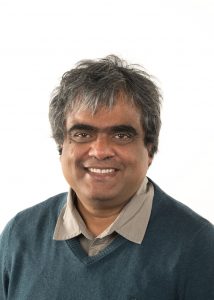 PROFESSOR SAYANTAN GHOSAL
PROFESSOR SAYANTAN GHOSAL
Dean of Interdisciplinary and Impact, Social Sciences; Professor in Economics, University of Glasgow, Scotland
FIELD OF RESEARCH: Social Sciences and Economics
RESEARCH PROJECT: Sayantan has developed a theoretical framework to study the psychology of poverty and “aspirations failure”. Rich and poor people share the same preferences and aspirations, but over time, poverty
leads to an inability to aspire to something better.
FUNDERS: ESRC, DfID, UKRI
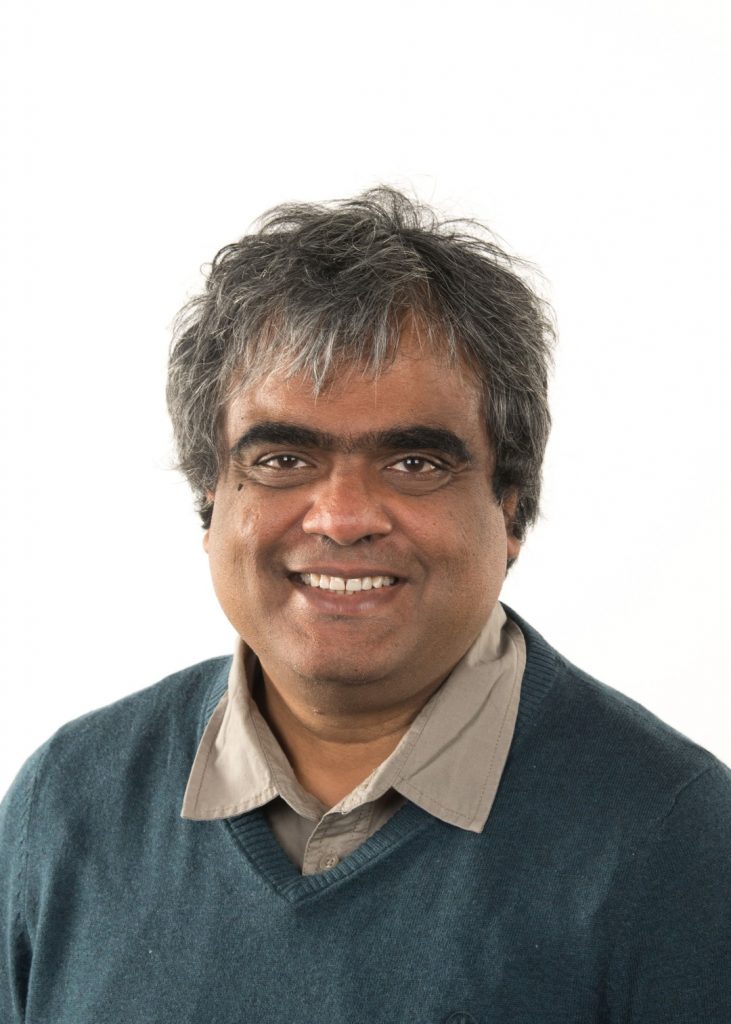 PROFESSOR SAYANTAN GHOSAL
PROFESSOR SAYANTAN GHOSAL
Dean of Interdisciplinary and Impact, Social Sciences; Professor in Economics, University of Glasgow, Scotland
FIELD OF RESEARCH: Social Sciences and Economics
RESEARCH PROJECT: Sayantan has developed a theoretical framework to study the psychology of poverty and “aspirations failure”. Rich and poor people share the same preferences and aspirations, but over time, poverty
leads to an inability to aspire to something better.
FUNDERS: ESRC, DfID, UKRI
ABOUT ECONOMICS
The dictionary would have you believe that economics is the branch of knowledge concerned with the production, consumption and transfer of wealth. However, while this is essentially correct, there is so much more to the subject – even if we go by the dictionary definition. For example, any attempt to understand the production, consumption and transfer of wealth must be concerned with understanding and analysing the social and political factors that are involved.
While the breadth of the subject might appear daunting at first, it does help open the subject out to those who are not necessarily interested in wealth and economies, but instead want to learn more about how the world operates and why.
WHY DO WE NEED ECONOMISTS?
Think about the world from the perspective of an unborn child. No child on Earth chooses where they are born, but we automatically understand that where you are born and who gives birth to you are the most important determinants of what you will become. Why is this the case? Why should it matter where you come from and who gave birth to you? Yet it clearly does. Individual trajectories differ so significantly for reasons that exist outside of any individual’s control.
To understand the reasons why this is so and the mechanisms behind it, we need to understand how resources are generated and shared, and how markets and institutions are configured – not just from the point of view of individuals, but from societies, too. This is what economists do – they employ methods and techniques that help uncover facts that provide a wider understanding of the world around us.
DO YOU HAVE TO BE GOOD AT MATHS TO STUDY ECONOMICS?
You do not necessarily have to be good at maths, but you do need to have an understanding of it. While economists do use maths, there is a common misconception surrounding maths taught in school. Sayantan believes that maths should be thought of as a language that can be used to express ideas about the world. Anyone who has read George Orwell’s 1984 will remember that one way of showing the grip that the “government” has on “society” is their insistence that 2+2=5. That insistence should help demonstrate how the facts of maths are indisputable and are therefore implicit to our understanding of the world around us.
The language of maths is completely transparent, which means it is verifiable by other people than the individual making the claim. Just because you are good at maths does not mean you will be a good economist and vice versa – all the maths you need for economics can be taught in a straightforward way relatively early on in your degree. The important thing to bear in mind is refining your ability to use mathematics in a convincing way.
WHAT CAREERS ARE OPEN TO YOUNG PEOPLE WITH A DEGREE IN ECONOMICS?
There are a wide variety of jobs! Many people are employed by banks, governments and organisations in some of the biggest cities in the world. You could be an analyst with a think tank looking at various aspects of an economy.
There is the option to study for a master’s degree in economics or move into behavioural economics, finance or even sociology – the world really is your oyster. Ultimately, the skills you learn during an economics degree will help you conduct independent research using empirical data, and reasoning logic into conclusions– valuable skills in any area of work.
• Prospects has a comprehensive list of some of the job options available to those who study an economics degree: Forensic accountant, diplomatic service officer, stockbroker and data science are just a few listed.
• Economics graduates are the highest paid in the UK according to a 2017 report from the Department of Education.
• Career advice from Top Universities shows the extraordinary breadth of opportunities for those who have an economics degree: www.topuniversities.com/student-info/careers-advice/what-can-you- do-economics-degree
ASK PROF SAYANTAN GHOSAL
WHAT DID YOU WANT TO BE WHEN YOU WERE GROWING UP?
A novelist. I had aspirations to write plays and movies in India, but then enrolled for a degree in English literature at Bombay University. My father was an economist, so I decided to select economics as an optional module for my course. I came across an inspirational lecturer who saw me reading D.H. Lawrence and said I could not understand his writing unless I understood the English class system – and that I could not understand that unless I read Marx. That was when I started studying economics seriously – the subject got me hooked and I soon switched to studying economics instead of English literature.
IN STUDYING ECONOMICS AT UNIVERSITY, WAS IT ALWAYS YOUR AIM TO FIND SOLUTIONS TO SOCIAL INEQUALITY?
Not really, no. Of course, it was always at the back of my mind – I grew up in India where inequality stares you in the face every day, but it wasn’t at the forefront of my mind during my studies. And then I met the PhD student who compelled me to look inwards to find the things I needed to address the issues of poverty and inequality from a novel perspective.
YOUR WORK ON POVERTY AND ASPIRATIONS FAILURE IS JUST ONE SMALL PART OF A WHOLE GAMUT OF RESEARCH CONDUCTED BY YOU. CAN YOU BRIEFLY DESCRIBE THE OVERRIDING THEME OF YOUR WORK?
It is mainly game theory [the study of how and why people make certain decisions] – I am an economic theorist in the main. I believe that economic theory has a lot to say that is interesting and not obvious about the world around us. I find the subject endlessly fascinating. Game theory and general equilibrium [a theory that tries to explain how the behaviour of supply, demand and prices in one market can affect, and in turn, be affected by supply, demand and prices in other markets] help me look at poverty from a different angle.
I am also inspired by the history of economic thought. I believe there are many ideas that have been neglected, and it is often worth reading the original texts to see what the authors thought. You get a different perspective doing that as opposed to reading textbooks that claim to have digested the original texts.
YOU ARE AN ACADEMIC AMBASSADOR FOR ADDRESSING INEQUALITIES AT THE UNIVERSITY OF GLASGOW. CAN YOU EXPLAIN WHAT THIS ENTAILS?
The University of Glasgow has identified six beacons and addressing inequality is one of them. One of my theory papers concerning addressing inequality is highly cited [the research has been quoted or referred to many times], which I suppose raised my profile in that particular area. So, I was selected by the University to be a beacon.
The role of Academic Ambassador involves giving talks to students and wider audiences, and I get invited to speak on radio stations. BBC Scotland and a radio station in South Korea are just two examples. I write articles in newspapers and for websites, including The Guardian, The Times of India, The Conversation and have spoken with MPs about inequality.
FINALLY, WHAT MOTIVATES YOU TO GET UP IN THE MORNING?
You mean apart from my family?! The fact I might learn something new! I try to keep to a strict routine of learning something new every day – whether that be an idea, a piece of research, or even about an individual. Life is a process of learning and committing to learning something new every day is certainly a motivation to get out of bed!
SAYANTAN’S TOP TIPS
1 The most important thing is to be interested in the world around you. Read the Financial Times or The Guardian as often as possible to learn about the world. Keep an open mind and try to engage with issues.
2 Ask questions. If you see two similar things priced differently on separate market stalls, ask why this might be so. If you are bold enough, ask the people working there to get a rudimentary (but fundamental) understanding of how economics work. Take these answers and ask what they might mean from a wider point of view.
3 Always keep this in mind: what is it I am assuming when I provide an answer? Analyse the assumptions that led to your answer to a question. Is the reasoning sound? Be curious! And self-aware. Try not to get too bogged down in maths – the primary concern behind economics is attempting to understand the world around you.


